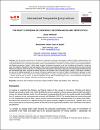The Right to Freedom of Conscience: Western and Islamic Perspectives
الملخص
With the constant reoccurrence of the question of peaceful coexistence among people of different religions, legal traditions, and understandings of freedom and human nature, there is a need for a fresh study of the concept of freedom of conscience. This article addresses conceptual, doctrinal, and normative issues relating to the concept of freedom of conscience as a human right by examining it from Islamic and Western perspectives. Chapter 1 of this paper considers the Western perspective on the right to freedom of conscience in three key areas. The religious, philosophical, and legal aspects of this concept receive particular attention in an attempt to discern the essence of what freedom of conscience means in the West. To understand how this concept is articulated in legal terms, this article analyses both its national and international legal bases, alongside the relevant case law of the European Court of Human Rights. Chapter 2 of this paper is devoted to the study of the Islamic perspective on the concept of freedom in general and on the right to freedom of conscience in particular, in order to ascertain whether or not this right exists in Islamic legal tradition. In doing so, this paper explores the most fundamental Islamic sources – namely, the Quran and the Sunna - in order to understand the role that this freedom plays in them. Two constitutional examples from Jordan and Qatar are then analyzed, before final conclusions are delivered.
المجموعات
- القرآن والسنة [99 items ]


